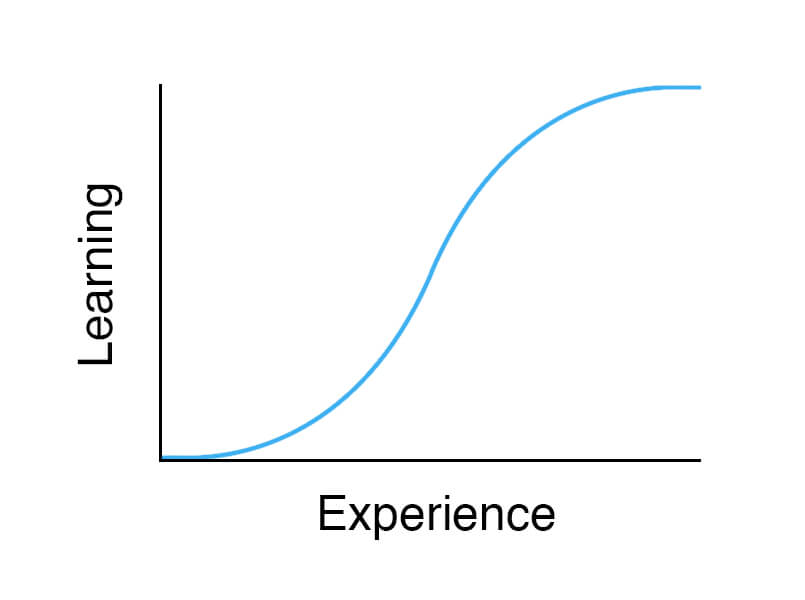Compound Learning

No one is completely ready to execute on their dreams. The small things you can do and learn today don't seem substantial, but it adds up to everything you can do–plus interest.
Most people know compound interest is why you should save money early in life. The interest on interest causes the invested amount to grow exponentially over time. Did you know a similar process also governs your life potential?
Learning works just like compound interest. The more you try to do and learn things, the more you understand how things work and how to learn better. These insights and reflections are your compound learning. While lots of people know this, I don't think it's stressed enough that it's okay when learning new things seem slow and unproductive at first.
For success-based activities, there's a standard learning curve called the Sigmoid curve (or S-curve)[1]. It grows exponentially just like compound interest but it has a plateau of mastery at the top.

The Sigmoid learning curve is amazing because it makes it easy to notice that going from nothing to capable could take as much effort as going from highly capable to absolute mastery. Things vary from the standardized curve, but it's a rule of thumb that can inspire grit.
Malcom Gladwell is often quoted for his 10,000 Hours Rule in his book Outliers, which indicates that it takes 10,000 hours of practice to become great. He states "ten thousand hours is the magic number of greatness", using examples like how Bill Gates started coding when he was 13.[2] While he doesn't argue that practice is a sufficient condition for success, the rule points out that natural ability takes time to manifest.[3]
If learning was a linear process, each experience would give you a sense of progress. It would be less mystifying to compare yourself to the greats, because you'd know they're just 10,000 steps ahead. In reality, your first 100 steps might seem like a clumsy wreck of wasted effort. You have to believe you can do the distance. Mastery requires grit and thinking critically about how to get there quicker. Eventually you'll learn to run, build a bike, or even build a spaceship[4] to get there faster.
A journey of a thousand miles begins with a single step, and starts out feeling like a game of QWOP.
- The exponential learning equation as a function of successful trials results in sigmoid performance.
Sigmoid just means resembling the Greek letter sigma (ς). ↩︎ - Unfortunately, I only spent ~4,000 hours playing Counter-Strike so I probably won't go professional. ↩︎
- Malcom's Reddit AMA where he addresses 10,000 rule confusion ↩︎
- Elon, can we go to mars together? ↩︎
